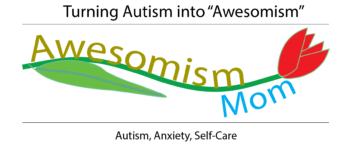
We are super happy to have as our guest blogger today.. Ness Behavior Consulting. This topic is a very important topic for so many autistic adults and autism families with adult kids. Please feel free to share this blog, as well as follow them on their social media! Follow them on Twitter, Instagram, Facebook and Youtube! Also, please check out their website here: ABA Therapy | NESS Behavior Consulting | United States
As always Thanks for reading! We always love hearing from our readers.
Learning to drive can be a difficult task for any adult. From the frustration of other drivers and traffic, to the anxiety of predicting the moves of other vehicles, to the many streams of information that require constant attention, it’s no wonder that driving simply isn’t for everyone.
But for many autistic adults, driving may be the best option for getting around and being independent. Public transportation can be far more overwhelming than other forms of transportation. Dealing with sensory overload, maneuvering routes and schedules, or simply being spoken to by other people looking for directions on the subway platform can be uncomfortable at best.
For neurotypical and neurodivergent people alike, taking control of your environment and finding modes of operation that work best for you is an important step in achieving success in your goals. Though many people with autism tend to get their licenses later in life and many others choose not to attain it at all, everyone should get a chance to try it before deciding that it isn’t for them.
EARNING YOUR LICENSE
There are a few ways to ensure that you are ready to take a drivers test or begin driving. In order to begin asking yourself if you are ready to drive, we might refer to this list of questions composed by researchers at Children’s Hospital of Philadelphia (CHOP).
The list asks generally about “good judgement and maturity” and whether or not it is demonstrated in interactions with peers. It asks if you understand the rules of the road, and if not, if you are capable of attending a drivers education class that suits your specific learning needs. The list asks if the prospective driver is amenable to practicing driving with a licensed driver and if there is an individual capable of fulfilling that role. Lastly, the list asks whether or not there are any behavioral or medical needs that need to be attended to, such as the use of a medication or presence of a visual impairment.
However, this list is mostly pertinent to the parents and caregivers of autistic youth, rather than for adults with ASD. The list assumes that these factors are being gauged by neurotypical people with an influence in the autistic person’s life, rather than the individual themself.
But because you and I, dear reader, know that adults and youth with ASD are capable of attaining a grasp on their own abilities, let us try to direct these questions toward ourselves and see how they apply. Here is a list of questions that an adult with autism can ask themself in order to determine if they feel themself ready to get behind the wheel.
- -Do others tell me that I have decent judgement and maturity? If not, do they provide good reasoning for their claims and should I take them on face-value?
- -Do I feel confident in my ability to react quickly to external stimuli, like a car honking close by or noticing another vehicle merging in front of me?
- -Do I sometimes struggle with spatial reasoning in a way that might make turning into traffic dangerous?
- -Do I have the logistical needs of being a driver sorted? Do I have a licensed driver available? Do I have access to driver’s education? Do I have access to a car that I can take my driver’s test in? Do I have the time and money to take the driver’s permit and driver’s license test?
The Autism Society hones this general list into more specific areas that autistic drivers need to be self-aware of. The list of characteristic factors their website features are: social judgement, motor coordination, pre-planning, flexibility to change, ability to focus, multi-tasking, and prioritization.
WHAT TO CONSIDER
For all the over-cautiousness suggested by these sources, it should be stated that there is no reason to feel that one’s autism makes them an inherently worse driver than any other person. Caution in driving is a reasonable impulse developed in our society in response to the many dangers cars present. But expressing caution is not the same thing as discouraging behavior.
Indeed, there is some evidence to suggest that autistic drivers may have significant skills that put them above the rest. Teendriversource.org states that young autistic drivers are nearly half as likely to be involved in speed related car crashes than their neurotypical peers.
However, driving is still one of the most dangerous of mundane activities. It remains one of the leading causes of death in the United States, and this cannot be solved by simply obeying the rules of the road closely. Driving requires many skills and the ability to act quickly and effectively.
Remember that source above that said autistic drivers get into less crashes that involve speed violations? Well, they also state that they are more likely to get into crashes that involve turning into opposite traffic, such as a U-turn or simple left turn on a two-way street. This may indicate that some autistic drivers struggle to maintain awareness of other objects on the road or deficits in spatial reasoning, leading to misjudging distances or inattention to important sensory input.
Of course, not every autistic person has the same difficulties. But just as young drivers need to be made more attentive to the rules of the road, autistic drivers should be aware of how their individual learning styles might affect their driving.
BEING CONFIDENT
The most important part of being on the road, many will tell you, is being confident behind the wheel. Nothing scares other drivers as much as a driver who doesn’t commit to their decisions, even if those decisions were mistakes.
This may be an intrinsic struggle for many people with autism or other developmental disabilities. Much of our experience is about being told not to engage in behaviors that come naturally to us. The consistent pressures to apologize and suppress and second guess contribute a lack of confidence for many people.
If confidence is something you struggle with, learning to drive is the ideal time to face your insecurities.
Healthy self-image starts in childhood, and while it’s never too late to unlearn some of the harmful things others have tried to make you believe about yourself, childhood exposure to therapies that help autistic people be themselves is an important part of growing up.
A solid background in Applied Behavior Analysis or other therapies will instruct children on how to conduct themselves in ways that maximize their potential and does not restrict their individuality.
As an adult, you can practice confidence through learning how to drive. Making sure you’re in a safe learning environment with a teacher who supports you is the best way to learn!
NESS Behavior Consulting was created to increase parents awareness of their essential roles
in their child’s educational process, and to build the capacity of educators to meet the needs of
students with an Individual Education Plan (IEP). With our Board Certified- and Licensed
Behavior Analysts, parents and their children receive uniquely and carefully tailored learning
plans. We provide 1:1 group parent training; training services to fulfill family court training or court order training; and our signature ABA Therapy Behavior Consulting services. For more content, subscribe to our free grayNESS plan to gain access to our library, blog, and group chat.

